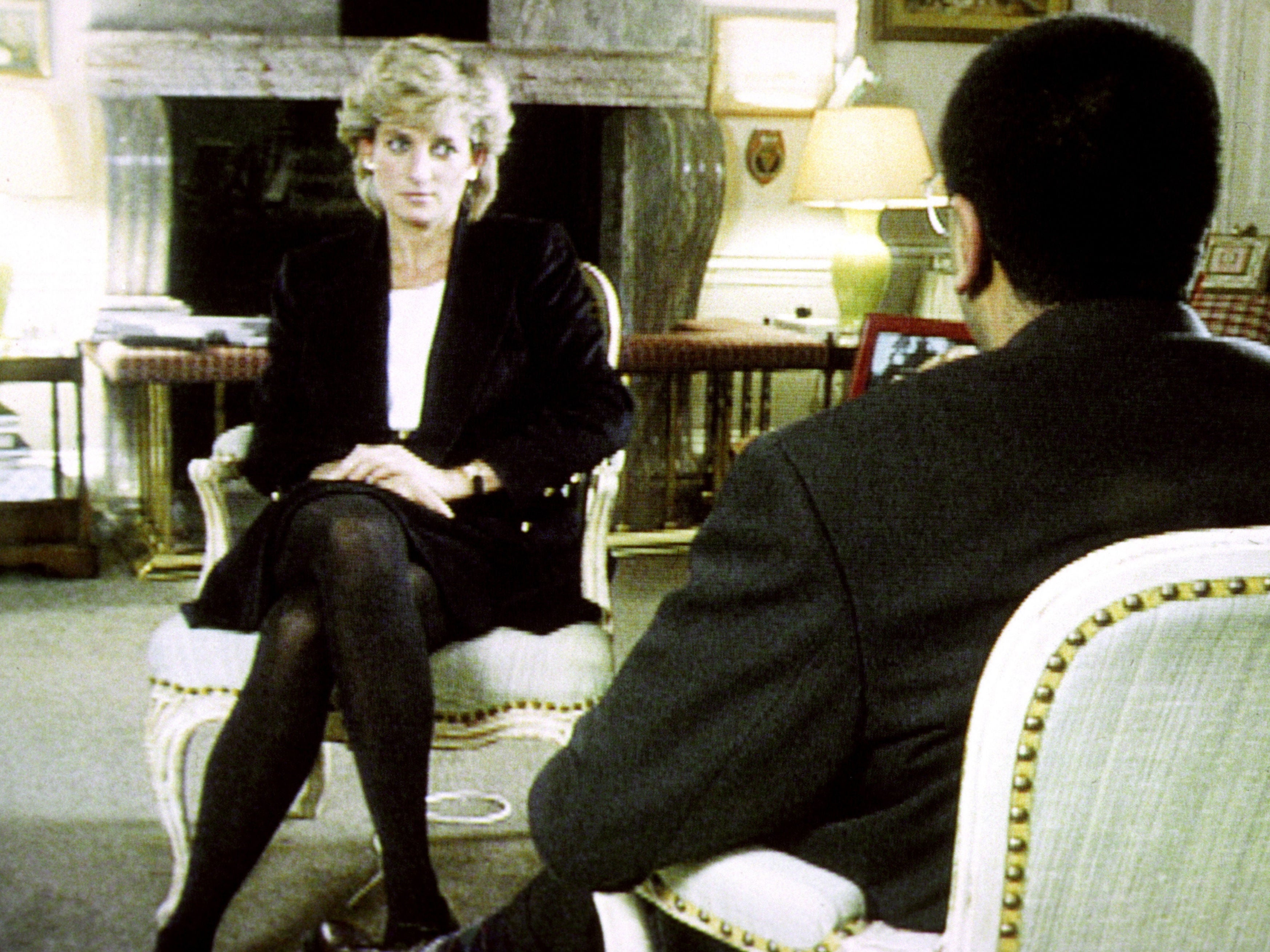Princess Diana bared her soul in the Bashir interview – she deserved better
Both the BBC and Bashir have apologised, as they should, with the corporation making clear that processes and procedures have changed


Your support helps us to tell the story
From reproductive rights to climate change to Big Tech, The Independent is on the ground when the story is developing. Whether it's investigating the financials of Elon Musk's pro-Trump PAC or producing our latest documentary, 'The A Word', which shines a light on the American women fighting for reproductive rights, we know how important it is to parse out the facts from the messaging.
At such a critical moment in US history, we need reporters on the ground. Your donation allows us to keep sending journalists to speak to both sides of the story.
The Independent is trusted by Americans across the entire political spectrum. And unlike many other quality news outlets, we choose not to lock Americans out of our reporting and analysis with paywalls. We believe quality journalism should be available to everyone, paid for by those who can afford it.
Your support makes all the difference.It was one of the few interviews that deserved the word "bombshell". Never before had a serving royal spoken in such candid terms about their life, or their relationship with others within the royal family. More than 20m people tuned in to watch it in 1995 – a figure that few programmes match in today's world of streaming services and fractured viewing habits.
While social media in its current form was some way away, there is no doubt of the impact the interview had: the line from Diana that there were "three of us" in her marriage to Prince Charles was likely the standout quote, but the fact that Diana also opened up about bulimia and self-harm was important. The resonance is clear when Prince Harry talks now about the effect his time in the limelight have had on his own wellbeing, while it could certainly be argued that his distrust in the media could be traced back to the treatment of his mother.
Lord Dyson’s probe into the Panorama programme has concluded that Martin Bashir, who secured and undertook the interview, was “deceitful” in his dealings with the princess and that he was in “serious breach” of BBC guidelines by producing fake bank statements to help set up the face-to-face meeting. Lord Dyson was appointed by the BBC last year to look into the circumstances surrounding the interview, with an internal investigation into the interview at the time, carried out by the former director general Tony Hall – now Lord Hall – concluded Bashir “wasn’t thinking” when he commissioned the graphic, but was ultimately an “honest and honourable man”.
Both the BBC and Bashir have apologised, as they should, with the BBC making clear that processes and procedures have changed. Bashir himself – who stepped down from his role at the corporation last month, after becoming seriously unwell due to complications from Covid-19 – has said he remained "immensely proud" of the interview and that: "The bank statements had no bearing whatsoever on the personal choice by Princess Diana to take part in the interview." Beyond the apologies, which have come far later than they should (but have at least arrived), it is a reminder of the intense spotlight the royal family are under. Both then and now.
Princess Diana certainly deserved better, as has been acknowledged – baring her soul in such a personal way was unprecedented, and her wellbeing was obviously key. Lord Dyson notes that “by early to mid-August 1995 at the latest, [Princess Diana] was keen on the idea of a television interview” and that the princess was "pleased" with the interview at the time, whatever reservations she may have had about it later.
The reports findings do however leave much to think about – and even feel sorrowful about – when it comes to the massive amount of attention it brought the princess.
It is a lesson in how we deal with interviewees, one that we should take forward when dealing with other members of the royal family – and perhaps indeed other celebrities. It also reminds us that no organisation is free from the obligation of thinking about such matters. The BBC and Bashir have acknowledged regrets, and the BBC have spoken of procedure changes, which is fair.
The royals, given their place in public life, are always going to be under scrutiny – it comes with the territory. But given the conversations that the Sussexes, Harry and Meghan are currently also having in public about royal life, it would do us all good to remember the lessons of Princess Diana's interview from 1995.
Join our commenting forum
Join thought-provoking conversations, follow other Independent readers and see their replies
Comments